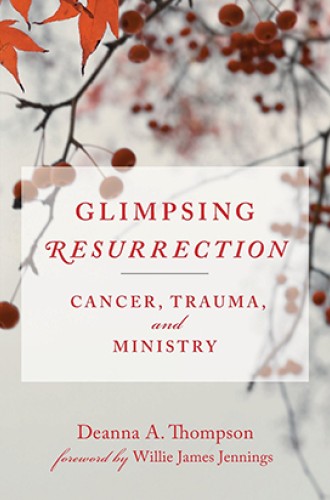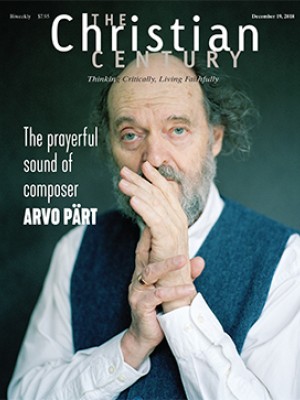When illness undoes us
Deanna Thompson's book about cancer takes us where we don't want to go but must.
For months I let my review copy of Deanna Thompson’s book sit on my desk, stacked in the middle of a pile of less threatening books. Did I want to read a work of theology written from inside the crucible of stage IV cancer? Was there not more pleasant work I could be doing, such as cleaning the bathroom, rewatching Scenes from a Marriage, or punching myself in the face?
Before I even began it, my relationship with this book had fallen into the precisely the sort of pain-avoidance that Thompson describes so well in her fourth chapter. “Could it be,” she asks, “that those of us whose lives bear some degree of wellness will go so far as to experience hatred toward those who are seriously ill” because of the threat they pose to our orderly lives?
Read our latest issue or browse back issues.
Indeed we do. We avoid, cancel plans, send our regrets, lose touch, even as we may be drawn to other forms of suffering, those we know how to fix. Each of us is someone’s memento mori, a walking reminder of that single weakness that one lives by ignoring.
In my case, the preexisting condition is anxiety, which intensifies my struggle with the even more preexisting conditions known as capitalism and masculinity—all of which work together to cause me to make invidious self-comparisons to everyone I meet and read, but especially people who are chronically physically sick. When I hear the testimony of such people, I think about how utterly exhausted I am at the end of a week of teaching, notwithstanding all the articles I didn’t write, the meetings I’ve begged off of, the socialist revolutions I failed to catalyze, and the books I failed to review in a timely fashion. I say to myself: You have the nerve to be tired now, you wuss? You wouldn’t last a week as a seriously ill woman! Now go do 50 push-ups to build character. When I read a book like Thompson’s, I am undone.
This denial that we all engage in—even those of us who consider ourselves unillusioned, post-hope, and hip—means that few of us pick up a book like this one until an emergency. For we all imagine ourselves as living within a story of some kind. (Even cynicism and despair, as Thompson points out, offer the comfort of predictably fulfilled expectations.) But serious illness disrupts every story we may imagine ourselves living in, religious or secular, especially when—like Thompson’s cancer—it promises an ongoing cycle of remission and return, depriving us even of a clear ending. (The writer Jenny Diski once remarked, with amusing directness, that her fellow cancer-sufferer Clive James “has had to apologize for not yet being dead” in his ongoing essays on the subject; the long irresolution of his struggle threatened to bore his regular readers as his death would not have done.)
Such illness destroys, as Thompson points out, any sense of nomos, the stable order of things that we cannot help picturing ourselves inside of. It undoes us. Thompson examines the stories our culture tells about cancer and points to writers—Susan Gubar, Audre Lorde, Christian Wiman, Kate Bowler, Barbara Ehrenreich, Susan Sontag, and others—who have critically, and in some cases hilariously, resisted these stories: the positive thinker, the brave chemo warrior, and so on. In different ways, each of these writers, like Thompson herself, has found that cancer is a true antinomian.
Christianity has always had an ambiguous relationship with nomos. It lays emphasis both on the divine love embodied in the orderly rotation of seasons and on the rupture that is God’s invasion of our little death-giving kingdoms. Thompson, like many of the theologians she engages with—Shelly Rambo, J. Todd Billings, Robert Jenson, and Martin Luther—is perhaps most profound when she helps us to imagine Christianity as the story of a God who does not simply restore creation to a pre-fallen homeostasis. Her readings of Jeremiah, the Psalms, and Mark are particularly lovely in their irresolution.
So go ahead and read the depressing-looking cancer theology book. It’s actually life-giving, and you need it. Our planetary situation, after all, is more or less the same as Thompson’s bodily one. Our nomos is disrupted down to the level of plankton and sperm cells, and our disease is, in some sense, a part of us. The people in charge seem to want the world to be four degrees hotter by the end of the century, and reactionary movements in all the richest countries seem determined to make sure the refugees we’re creating will have nowhere to go but into the sea. We don’t know how long we’ve got, and none of our stories seem to be working. If we survive, it will be in a version of ourselves unrecognizable to ourselves. We’re all in exile from an ordered world. With the help of thinkers like Thompson, we can relearn how to sing our songs in a hot, barren land.







